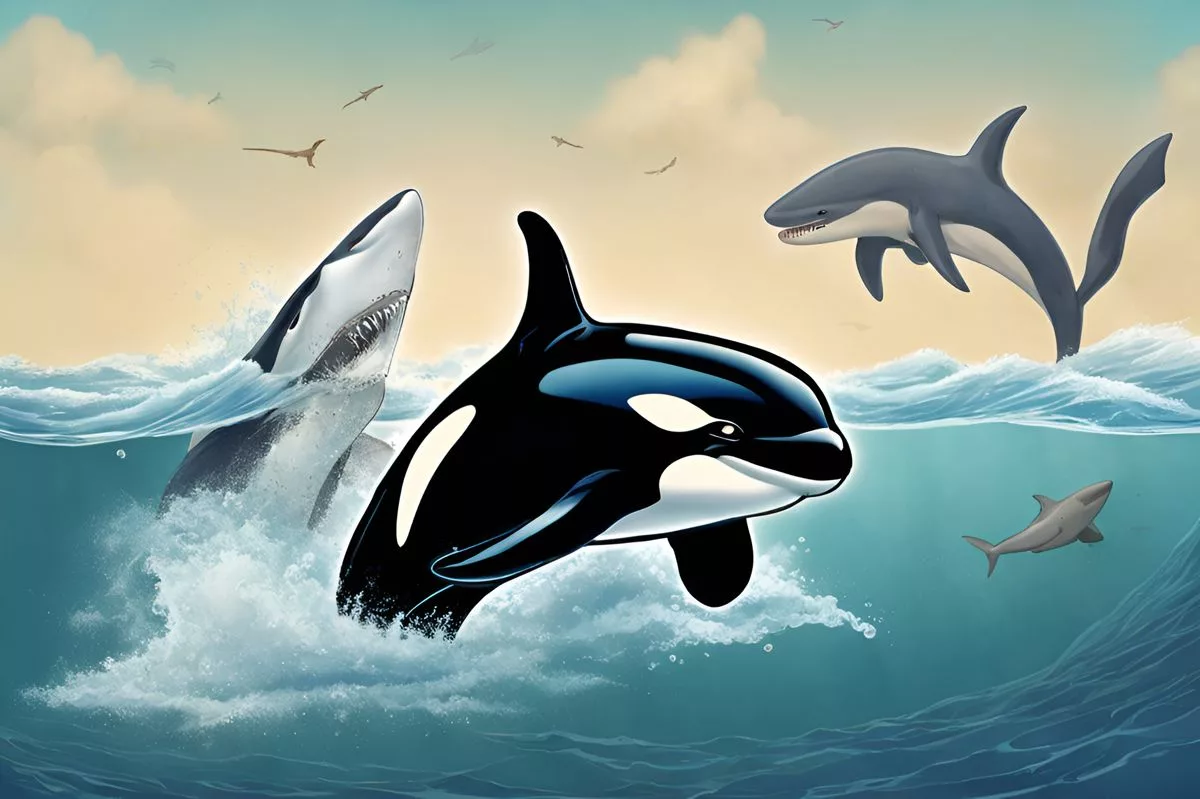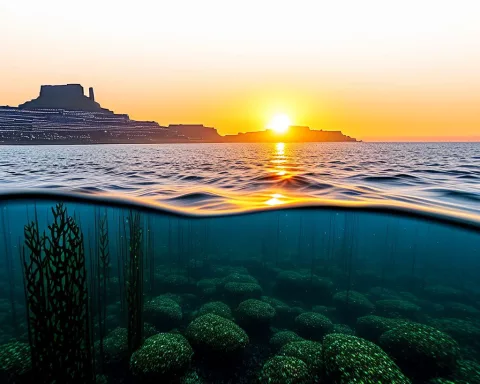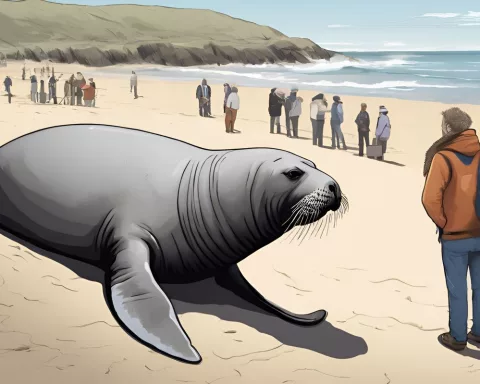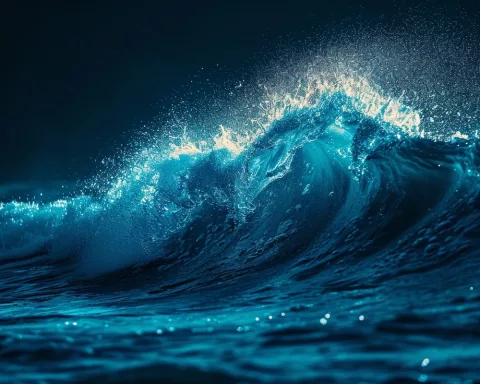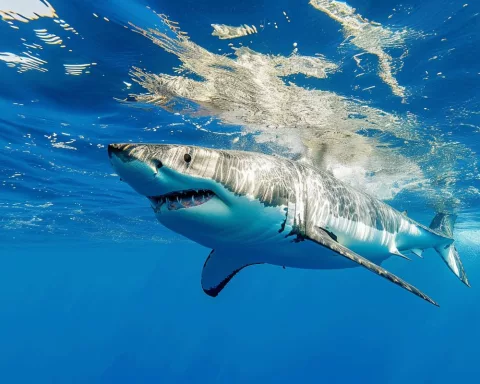Meet Starboard, the audacious orca with a unique hunting strategy for defeating great white sharks. This solo-hunting technique, observed off the coast of Cape Town, South Africa, is a game-changer in our understanding of orca behavior. However, the exit of apex predators like sharks could cause a ripple effect throughout the ecosystem. The arrival of the solo-hunting orca ushers in an exciting new era in the annals of marine life.
The Ocean’s Audacious Predator: Starboard the Orca’s Novel Hunting Strategy
Discover the audacious orca, Starboard, and his unique strategy for hunting and defeating great white sharks. Starboard’s solo hunting technique, observed off the coast of Cape Town, South Africa, is a game-changer in our understanding of orca hunting behavior. This remarkable feat has caused ripple effects in the ecosystem, and the exit of apex predators could cause a chain reaction throughout coastal South Africa. The arrival of the solo-hunting orca ushers in an exciting new era in the annals of marine life.
In the boundless depths of the ocean, survival is the ultimate goal, and a novel predation method has surfaced. The protagonist of this new pattern is an audacious orca, Starboard, who has pioneered a unique strategy to hunt and defeat one of the ocean’s most formidable foes – the great white shark. This remarkable display took place in the water near Mossel Bay in June 2023, captivating marine scientists who had never seen such behavior before.
Starboard is a familiar presence in the aquatic habitat of Cape Town, South Africa. Along with his likely sibling, Port, they have been monitored since 2015 for their distinct method of eliminating sevengill and great white sharks. Their modus operandi involves inflicting damage on the fish’s pectoral girdle, consequently extracting the energy-dense liver and leaving the rest of the carcass intact. The duo is easily identified by their warped dorsal fins, with Port’s slanting left and Starboard’s tilting right.
The Solo Hunt: Starboard’s Game-Changing Adventure
The most striking aspect of recent footage is Starboard’s raw solo power. In less than two minutes, he tackles an eight-foot-long juvenile great white, surgically extracts its liver, and then parades his catch before the videographer’s boat. This action, performed without the aid of Port who merely watched from a distance, alters our current understanding of orca hunting behavior.
Alison Towner, a reputable shark expert at Rhodes University and the individual responsible for this enlightening study published in the African Journal of Marine Science, was stunned by Starboard’s solo venture. Towner confirms that orcas are recognized for their group effort during hunts, especially when the prey is as formidable as a great white shark. Hence, the solo hunting strategy exhibited by Starboard is intriguingly exceptional.
Orcas have been in the spotlight in recent years for their collective hunting techniques, known as pack hunting. Observations of an Antarctic population of orcas revealed a strategy known as ‘wave washing,’ where the predators collaborate to create waves that knock prey off ice floes. Furthermore, in 2017, orcas were spotted collectively hunting a bowhead whale in Russia. However, the solo hunting of larger species is a hitherto unprecedented risk that orcas have seldom been seen undertaking.
The Aftermath: Ripple Effects in the Ecosystem
Following this remarkable hunting incident in June 2023, there was a noticeable migration of great white sharks from the area that continued for around four months. Towner has noted similar movements following previous orca attacks, confirming that such events can create significant disruptions in the local ecosystem.
While Towner concedes that unregulated overfishing is a more substantial threat to shark populations than the hunting activities of Port and Starboard, the arrival of orcas imposes an additional strain on already besieged fish species. The exit of apex predators such as the sevengill and great white sharks could cause a chain reaction throughout coastal South Africa. Prey species like seals and fish might experience a population boom. Other shark species, like the copper shark, are already vying for the dominant position in the local food chain.
A Fresh Chapter in Marine Life: The Audacious Solo-Hunting Orca
These natural dynamics, when viewed on a broader scale, underscore the delicate balance of the marine ecosystem and the crucial role that each creature, from the tiniest fish to the most formidable predator, plays. In this complex aquatic world, the arrival of the solo-hunting orca, with its daring prowess and innovative hunting techniques, ushers in an exciting new era in the annals of marine life.
1. Who is Starboard and what is his hunting strategy?
Starboard is an orca off the coast of Cape Town, South Africa, known for his unique hunting strategy of inflicting damage on the great white shark’s pectoral girdle, extracting its liver, and leaving the rest of the carcass intact.
2. How does Starboard’s solo hunting behavior differ from typical orca hunting behavior?
Orcas are known for their group effort during hunts, especially when the prey is as formidable as a great white shark. Starboard’s solo hunting behavior is exceptional and alters our current understanding of orca hunting behavior.
3. What are the ripple effects of orca attacks on the ecosystem?
Following orca attacks, there were noticeable migrations of great white sharks from the area that continued for around four months, causing significant disruptions in the local ecosystem. The exit of apex predators such as the sevengill and great white sharks could cause a chain reaction throughout coastal South Africa, resulting in a population boom of prey species like seals and fish.
4. What is the importance of orcas in the marine ecosystem?
Orcas play a crucial role in maintaining the delicate balance of the marine ecosystem. Their arrival, with its daring prowess and innovative hunting techniques, ushers in an exciting new era in the annals of marine life.
5. What is the impact of unregulated overfishing on shark populations?
Unregulated overfishing is a more substantial threat to shark populations than the hunting activities of Port and Starboard. The exit of apex predators such as the sevengill and great white sharks could cause a chain reaction throughout coastal South Africa.
6. How have other orca populations been observed to hunt?
Observations of an Antarctic population of orcas revealed a strategy known as ‘wave washing,’ where the predators collaborate to create waves that knock prey off ice floes. Additionally, in 2017, orcas were spotted collectively hunting a bowhead whale in Russia.

